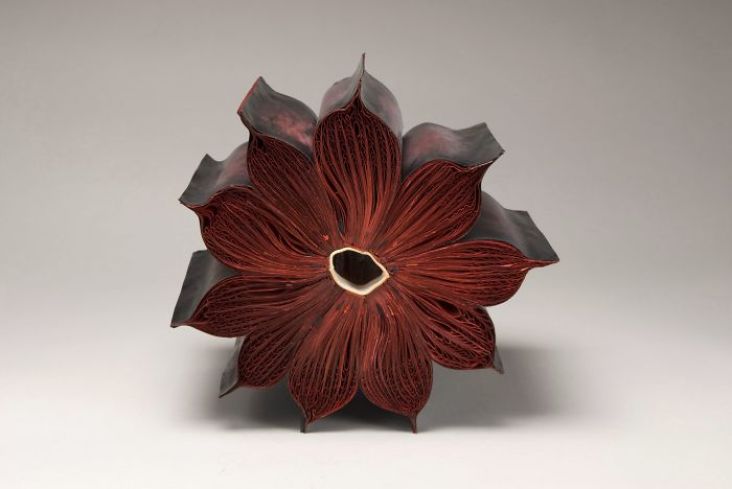10 ways to lead your team like Jose Mourinho leads Chelsea
What can you learn about leadership from the best football manager in the world? Quite a bit probably, unless you’ve won two Champions Leagues and eight league titles in four different countries.

Image licensed via Adobe Stock
Jose Mourinho is famous for his skill in team management and is deeply beloved by all of his players – apart from the odd one he ships out for falling short of his exacting standards of work rate and behaviour.
With Chelsea crowned 2014/15 Premier League champions, meaning Mourinho picks up an astounding 22nd trophy of his career, Creative Boom decided to take a look at the wisdom of the Special One, and how you can apply it to your creative team.
1. Adapt your style to your situation
“My style of leadership is not a style. I try to have a leadership that is adapted to reality. And last year, I felt that they were not ready for what I call a pressure leadership – or confrontational leadership.”
Last year, outwardly, Jose didn’t see his young Chelsea side as serious title contenders, so he adjusted his manner to fit that scenario. He took the pressure off and adopted a more nurturing style that saw his players ‘learn on the job’ the way he wanted things done, without the burden of difficult-to-achieve targets. It paid off – the season after, his team was more confident and tactically astute. They became a swaggering, dominant force and won two major trophies in 2015/16.
2. ‘Confrontational leadership’ makes potential reality
“I called it confrontational leadership: confrontation not just inside, but also outside the group. We were not afraid to say we are the best, we were not afraid to say we are going to win, or we are special, we are going to prove that we are – so it was perfect.”
Making potential a reality is Jose’s bread and butter. His ‘confrontational' style is about building egos and setting massive individual challenges. Like telling Frank Lampard he was "one of the best players in the world, but nobody knows," – effectively setting a challenge for Frank to win the Ballon d’Or (world player of the year). He didn’t win it – but he did go on to be Chelsea’s record all-time goalscorer – a massive achievement for a midfield player.
Motivate your strongest people with stretching individual challenges – be they winning awards, more prominent clients, 100,000 Facebook likes, whatever – and your best players will rise to the creative challenge.
3. Know which way to play it
“In terms of mentality, I’m not much older than the players – I think I can put myself at their level. I believe it is essential to understand them. The more you know them, the more you can lead them. I never liked the kind of leadership where the boys say: ‘He’s my leader. I have to respect him.’ I prefer them to say: ‘I respect him and he’s my leader.’”
Jose talks about empathy a lot. You should be taking time to get to know your team as people, what makes them tick – and let them know what makes you tick too. A solid knowledge of your teams’ ambitions, prevailing emotions, creative methods and their capabilities and faults will help you see things their way, which will make you more approachable and trusted, which is highly motivating to your team.
4. Can you be friends with the players?
“Of course, many people say we cannot be friends with the players. I say exactly the opposite. If you are not friends with the players, you do not reach the maximum potential of that group. You have to be friends with them, but they have to understand that between friends, the answer is never the answer they are expecting, or the answer they want to hear. They have to understand that.”
What he means, I think, is that to get the very best out of his men, he has to in fact go beyond acting like a friend, and act like a best friend – the guy you can go to with anything, who tells it like it is, who is constructively critical without being judgmental or cruel. Your best friend isn’t afraid of upsetting you, because you trust that ultimately, they only want good things for you.
5. Your people are more important than you
“One of the things you must remember as a leader is your people are more important than you.”
To get the group to perform, you need to put the group first. Jose is all about the group because groups win trophies, not managers. Being approachable, listening, and making all your players feel they can contribute freely and make a real difference – will get you much further than any autocratic ‘coz I say so’ approach.
6. Make your words work for you (a.k.a watch your mouth)
“When I go to the press conference before the game, in my mind the game has already started.”
Jose is the king of mind games, manipulating the media and baiting other coaches through the power of his skill on the soapbox. Far from being an ego trip, he does it to inspire his players and take the pressure off them by making himself the headline-grabber.
For your ends, you need to realise the power of your own words. Your players will be affected by every word you say, positively or negatively, consciously or unconsciously. As a communicator, you are never off duty. Be a goal-orientated communicator – think before you speak, and try to talk and act in a way that builds morale, not deflates it, 100% of the time.
7. Communicating in writing
“From here each practice, each game, each minute of your social life must centre on the aim of being champions. First-teamer will not be the correct word. I need all of you. You need each other. We are a team.”
Excerpt of a letter from Jose Mourinho to the Chelsea squad, 2004.
Another quirk of Jose’s management style is his propensity to communicate with his players in writing. Not only does he write them letters, but he also passes post-it notes on to the pitch. It is an unusual way for a football manager to impart wisdom and support, but you can bet the players cherish his missives.
To learn from Jose, take time to make written communication crystal clear and motivating. Sloppily rushed emails with ambiguous meanings, an air of entitlement or rudeness, or barely legible handwritten feedback will not be enough to get the best out of your team.
8. Build culture your way
“People ask me: what is your model of play? I say: “Model of play against who? When? With which players?... For me, the model of play is the principles I establish with my team as priority principles which give us a certain DNA.”
To build a culture as Jose does, build hard work, unselfishness and putting the group first into the mindset of the whole team. You might even go as far as building soft skills and morale-boosting into the annual appraisal process – an approach that has been gloriously successful for Innocent Smoothie, where actively living the defined brand values brings monetary rewards – and contravening them costs cash (and ushers bad apples towards the door).*
9. Recruitment with Jose
"I am a winner because I am good at what I do and because I am surrounded by top people. Alone, you do absolutely nothing."
“But can you work the talent properly so that he understands the team’s needs? Is he an intelligent, open guy waiting for you to help him be better? Is he the kind of unusual guy, the selfish guy, where it is much more difficult to persuade him the team is more important than he is?”
“I want everybody with a very strong motivation. When you have a big box of oranges, and one of them is bad, one month later, ten oranges have to be sent to the garbage."
To build a team like Jose, hire only the people you are super excited about working with – never give anyone the benefit of the doubt at the recruitment stage. Don’t take risks with your team morale – only bring in players who not only can do the job but can enhance and empower the team in other ways too. It’s well worth asking questions at the interview stage like ‘other than nailing your role, what else are you going to bring to the team?**.’ If you’re not excited about the answers, it might be a wise move not to hire them.
10. Keep running to a minimum
"With modern methodology, players can play a lot of matches. The best way to keep in good shape is to have a perfect tactical organisation because the players don't need to run so much.”
Commentators often point out how Jose doesn’t rest players as often as many other managers do. Still, it’s not often talked about how he manages to keep his best men fresh: he uses finely-tuned tactical systems to keep the distance each man has to cover on the pitch to the bare minimum.
To follow his lead, make sure your internal processes are stripped of ‘running for running’s sake’. Keep stuff like internal reporting and meetings mercifully swift, efficient and visibly value-adding, to ward off frustration and fatigue, and keep creative energy levels supremely high.
**When Jose opens up, he talks to the Telegraph. Quotes courtesy of interviews with the Daily Telegraph, apart from the sample of the letter, which is courtesy of CFCnet.
***Recruitment policy comments with thanks to Richard Reed, founder of Innocent Smoothie, who was speaking at an SME event held at the Telegraph offices on 30/4/2015.



















 & [Daniel Firman](http://danielfirman.com/)](https://www.creativeboom.com/upload/articles/3e/3e914c81e3ab41274de8547420df226788c4575e_732.jpeg)





